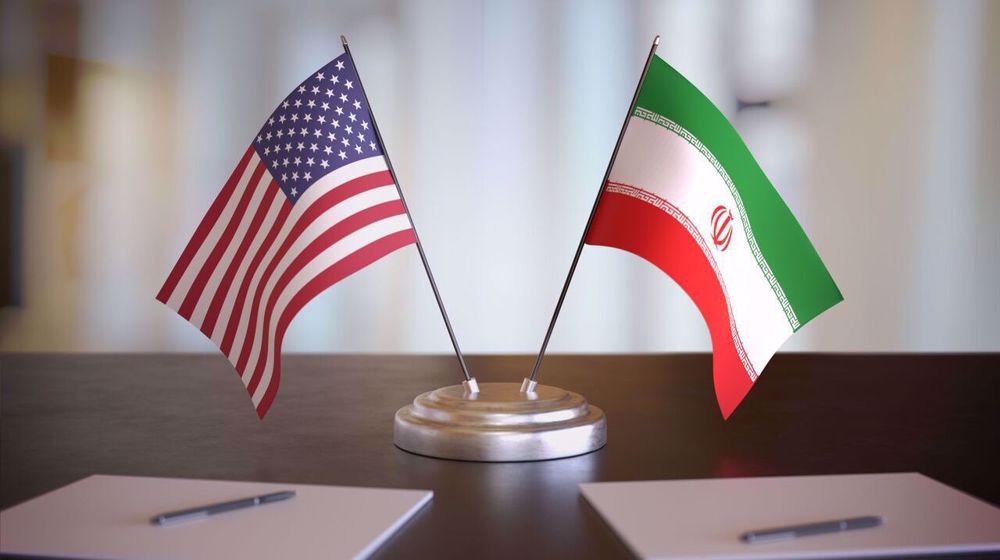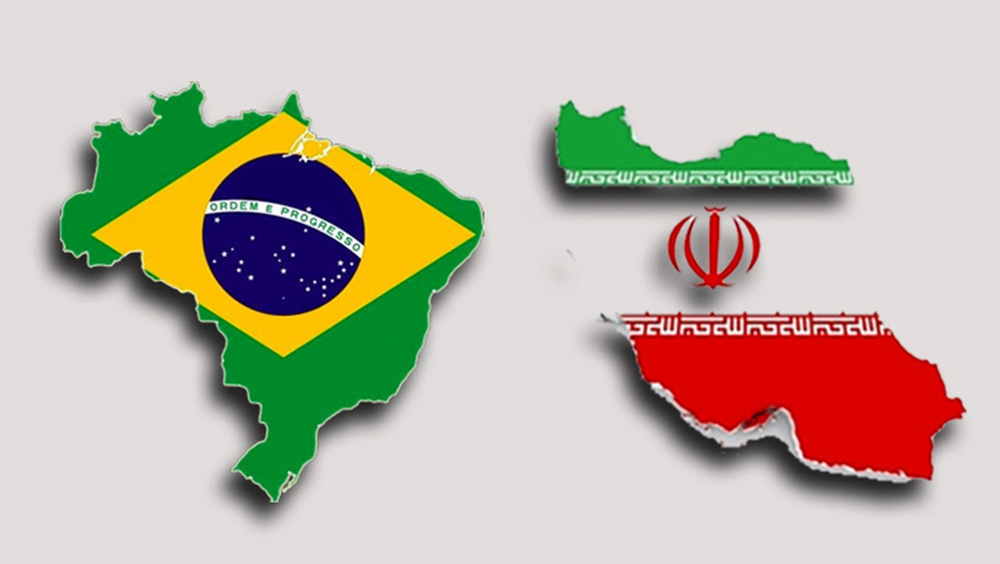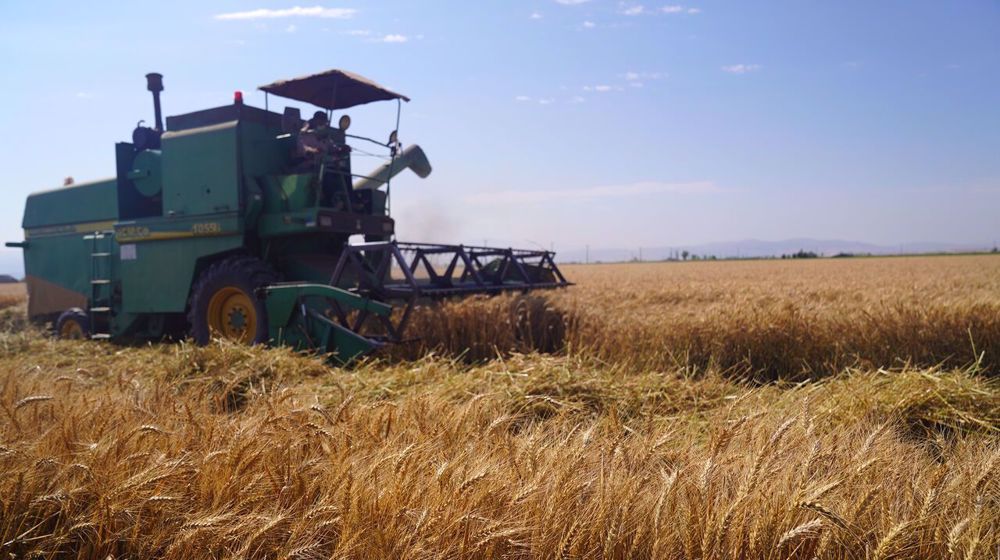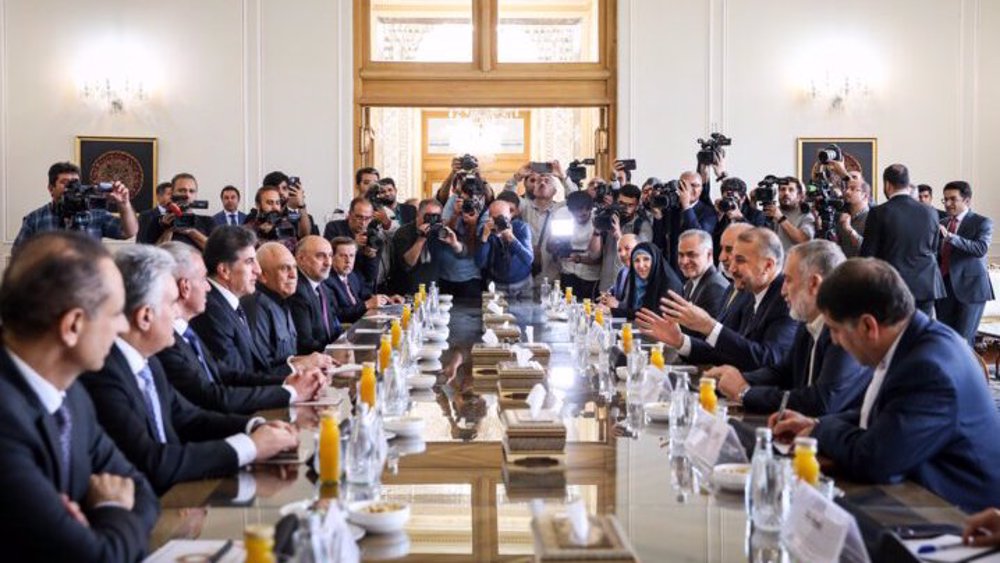Why Iraqi Kurdistan is important for Iran
President of Iraq’s Kurdistan region Nechirvan Barzani was in Tehran Monday, heading a high-level delegation to bolster relations and explore opportunities for cooperation.
Nazim Dabbagh, representing the Kurdistan Regional Government in Tehran, emphasized the significance of the visit, noting Iran’s view of Iraqi Kurds as a strategic ally.
Since the overthrow of the Baath regime in 2003, Iraq and the Kurdistan Region have become two important destinations for Iranian goods.
Iran’s trade volume with Iraq and the Kurdistan Region has stood at around 13 billion dollars in recent years, just over half of which is through around half a dozen land border crossings with areas under the control of the Kurdistan Regional Government (KRG). Iranian officials have repeatedly said that they want to increase the volume to 20 billion dollars in coming years.
According to the Iraqi Kurdistan’s Importers and Exporters Union, Iran ranks as the second-largest trading partner of the Iraqi Kurdistan region, just behind Turkey. Their annual trade amounts to approximately $6 billion.
The Iraqi Kurdistan’s market offers the best opportunity for the presence of Iran's capabilities in various fields.
Over the last two decades, it has seen the regional countries jockeying for position, but Iran's presence in the market has been minimal despite the existence of common cultural and social capacities between the two sides.
Various memorandums have been signed, especially by the provincial authorities in recent years, but the presence of Iranians in the regional market is not proportional to the capacities and talents at their disposal.
For example, there is significant capacity in the medical sector in Iran’s Kurdish-populated regions near the border, which can be used by patients and clients from Iraq, including the Iraqi Kurdistan.
Currently, the presence of health tourists from the Iraqi Kurdistan in Iran’s Kurdish regions is a familiar sight, but there is still room for much bigger numbers given the existing capacities and linguistic and cultural similarities.
The Iraqi Kurdistan and Iran are connected through three official and internationally recognized border crossings: Parviz Khan in Garmiyan, Haji Omran in Erbil, and Bashmakh in Sulaymaniyah. Additionally, trade persists between the two regions through semi-official border points such as Shushme, Sayranban, Kele, and Pishtay Tawela.
Kermanshah in Iran alone has 371 km of land bordering the Kurdistan Region and Iraq, with six border crossings and border markets.
Food industries and industrial products are one of the most important market needs of the Iraqi Kurds, for which there are significant capacities in the Iranian Kurdistan.
Overall, Iraq has always had a significant place in Iran’s international trade, where the export of engineering services to rebuild the country’s infrastructure is more desirable than the export of goods.
The Arab country, not the least the autonomous Kurdistan region, depends on oil for about 96% of its income.
Years of occupation by US-led forces, the Daesh sedition and internal fight lingering from the time of former dictator Saddam Hussein have destroyed Iraq’s infrastructure.
Hence, engineering services and infrastructure projects are not only more economical for investment than exporting goods, but also entail in better returns.
However, strict and redundant laws and practices outside the usual commercial frameworks are a key hurdle, which require the two sides to facilitate the terms of trade exchanges.
They also need to perk up interaction between the private and public sectors, and facilitate business conditions and procedures.
For Iran, failure to benefit from available capacities will take away the best opportunity to export technical and engineering goods and services and allow Turkish companies to solidify their foothold in the region.
The fate of Iranians and Kurds is inextricably intertwined, where none has lived without the other, with their close kinship manifesting itself in every aspect of their life.
On Monday, President Barzani was on point when he cited former president of Iraq’s Kurdistan Masoud Barzani famously saying that late Iranian general Qassem Soleimani was the first who came to the rescue of Kurds after they were attacked by Daesh terrorists in 2014.
With such a background, what they need is to summon their best efforts to forge a robust partnership for the future and prosperity of their region and insulate it against foreign manipulation which has brought only pain and misery in recent years.

Iran denies US investors will be present in its trade fair

Iran eyes more exports to Brazil to balance bilateral trade

Iran expects major drop in domestic wheat yields
VIDEO | Exclusive: Yemeni eyewitnesses say US warplanes targeted civilians in their homes
VIDEO | Press TV's news headlines
‘Guardians of Revolution’: IRGC warns enemies it is at ‘peak of all-out readiness’
Microsoft collaboration in Gaza genocide
VIDEO | Senior Hamas-allied leader killed in Israeli drone strike south of Beirut
Syria arrests Islamic Jihad officials after US ties sanctions relief to ban on Palestinian groups
Gaza children dying not only from bombs, but hunger: Health Ministry
Israeli strikes kill nearly 10 Gazans, including two children, in new aggression







 This makes it easy to access the Press TV website
This makes it easy to access the Press TV website